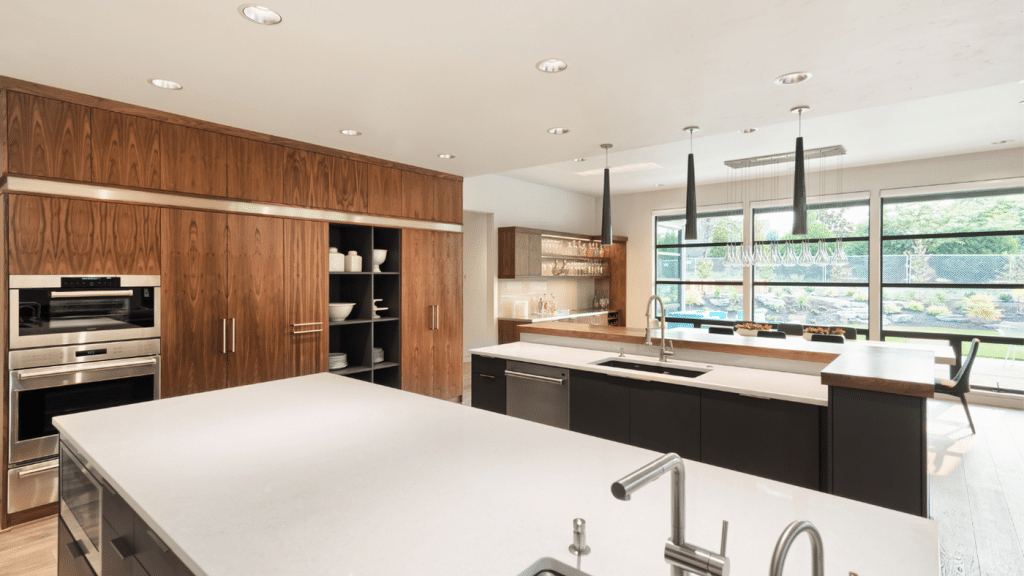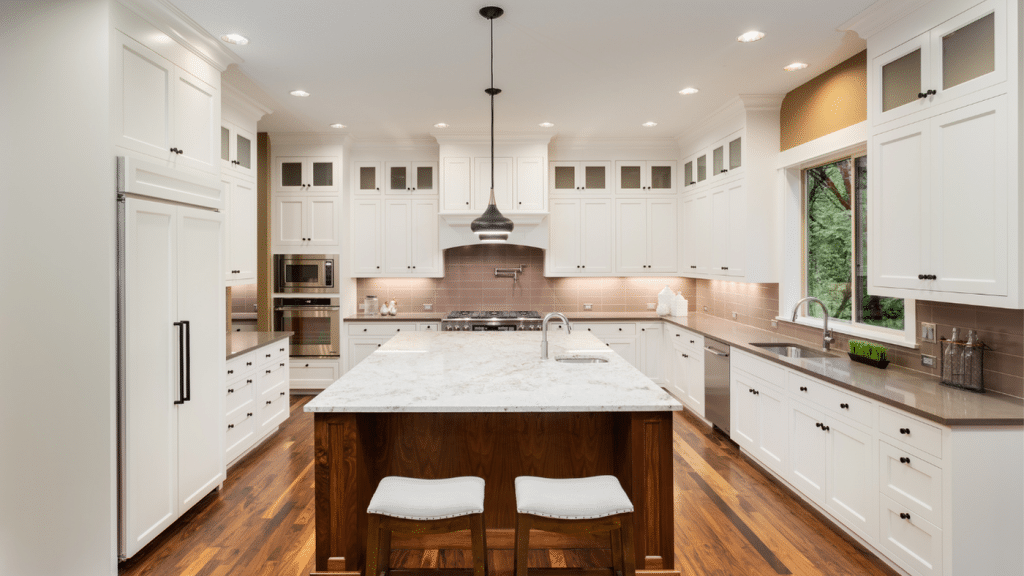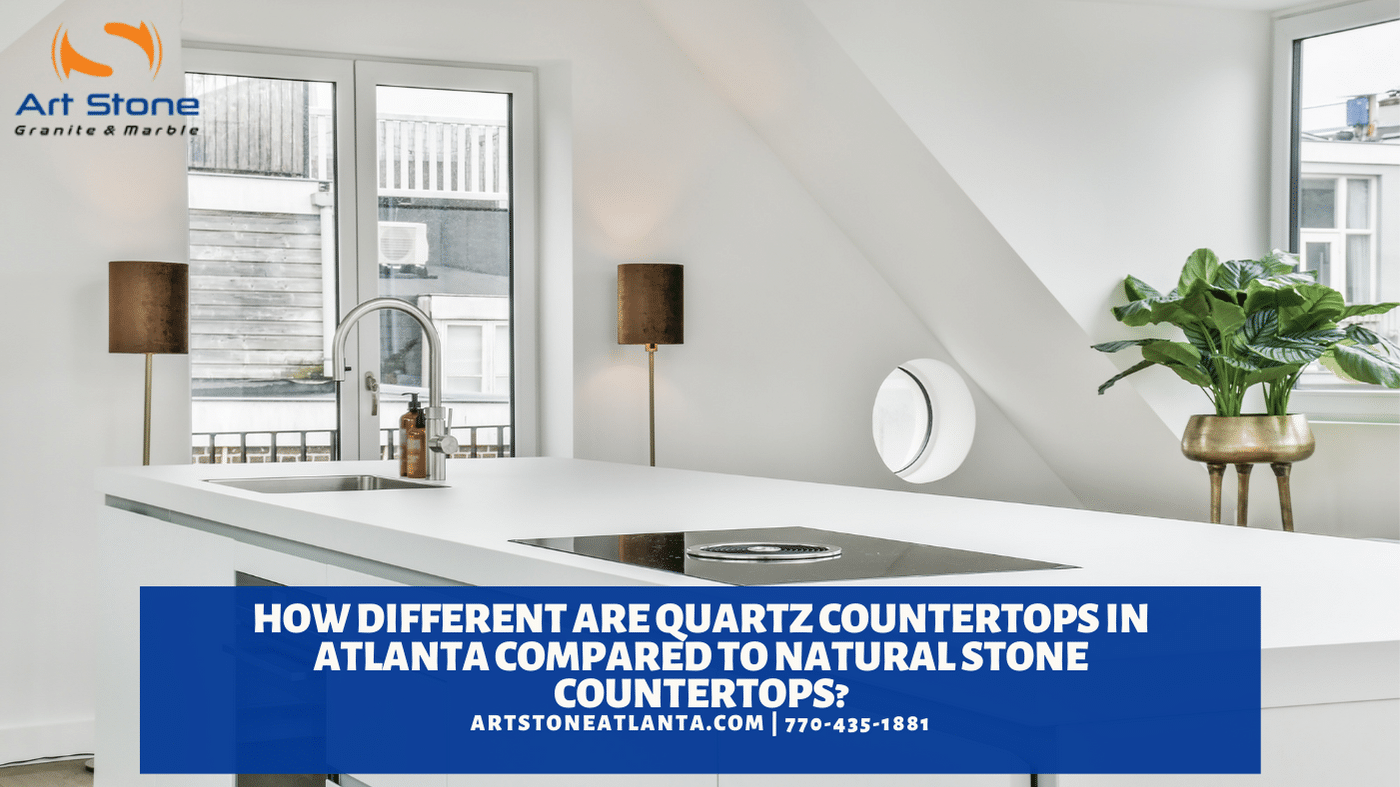How are quartz countertops engineered?
Although you will indeed find quartz particles in some quartz countertops, saying that quartz countertops are made from all quartz is just like suggesting that all cars in an average parking lot are Chevrolets.
There is a full 10% of the total volume in a quartz countertop that has nothing to do with stone. Instead, it has a lot to do with polymers and cement-based binders.
Now, what about the other 90%? It is made up of crushed up granite, marble, or other recycled industrial waste such as silica, ceramic, mirrors, glass, etc. And of course, maybe there are traces of actual quartz—and sometimes, most of the slab is made up of genuine quartz. When all these rock materials are mixed together and held in place using binders, the result is a countertop that has a look and feel similar to that of a natural stone countertop.

quartz countertop in Atlanta
More accurately, quartz countertops in Atlanta should be referred to as composite stone material or engineered stone—a term that is a more accurate description of how the countertops are made.
All quartz countertops are processed from the same sources
Back in 1963, Breton company based in northeast Italy developed a technology of designing engineered stones, a process licensed under the Bretonstone® trademark. More than five decades later, Breton’s company is still in operation.
The processing of quartz countertops involves blending an already pulverized natural stone aggregate with a mixture of polymers, extracting all the air from it, before heating and shaping the mix into slabs to be as hard and with a look of natural stone. Since the processing of quartz countertops can be done using recycled natural stone materials, quartz countertops in Atlanta are reasonably priced.
Atlanta Quartz countertops help in conserving the environment
Taking an example of Fiberboard, the material is much maligned, as sure as tomorrow; you can comfortably bet that no tree was ever cut down in the name of making fiberboard. The same is true for engineered stone countertops. 90% of the natural materials that make up the base foundation of quartz countertops are made up of waste by-products gotten from quarrying or fabrication processes.
There has never been a natural stone product that is quarried for the sole purpose of creating quartz countertops. Not only does this create more market for quartz countertops, it also makes it possible for homeowners to get quartz countertops cheaply.
These days, you will find that even the resins making up the remaining 10% in quartz countertops have been made to be less synthetic and more natural. Atlanta countertops fabricators & installers refer to these compounds as Biogenic Resins, which means that they are made from a combination of both artificial and organic resins, the latter being derived from non-edible vegetable oils.

quartz countertop in Atlanta
Most are the times in Atlanta when you walk on quartz
Whenever most people think of quartz countertops, the first thing on their mind will be either a kitchen or bathroom. But did you know that the majority of quartz is cut out in large sizes for public places such as the shopping mall, the airports, or Prada floors? You have probably walked on quartz countertops countless times without even realizing it. This is because it is much easier to get large blocks of quartz countertops in Atlanta than it is to get a natural stone material in large slabs.
Quartz countertops No Longer Compete with Granite or marble countertops
There was a time when the quartz countertops market tried to compete with natural stone markets. Atlanta Quartz Countertops later developed a reputation as the more durable, less porous, and easily fabricated version granite countertops.
Although there are still vast numbers of granite-look quartz materials still playing the market today, quartz that looks unique is the best selling product in Atlanta today.
The best part of it is, you can get reasonably quartz countertops from Artstone Atlanta. Call us today for the best prices on high value quartz countertops.











